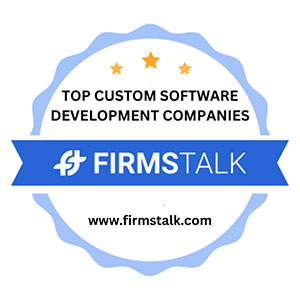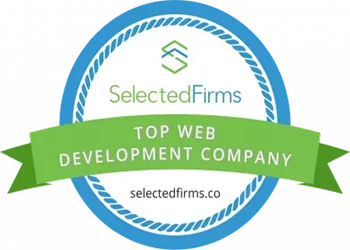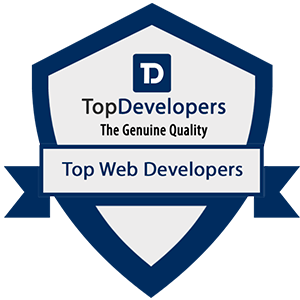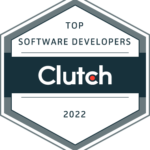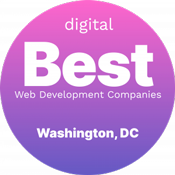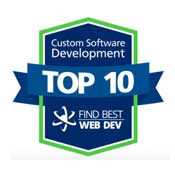Healthcare Software & Services
EHR Integration
Tell us about your project.
Connecting Patient’s Data & Streamlining Systems
Seamless EHR integration with your existing systems and workflows for streamlined healthcare operations
The efficiency and consistency of healthcare IT is dependent on the reliability of its EHR (electronic health record) integration. Developing an EHR that connects to a healthcare organization’s IT involves designing, developing, and refining the system to securely connect with the organization’s patient app or practice management system.
EHR integration involves connecting two or more EHR systems into one comprehensive EHR system. By joining one more EHR system together, healthcare providers can provide care to patients more effectively and efficiently.
Why Orases?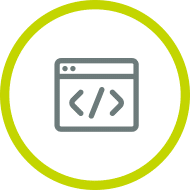
Custom Software We Develop
Engaging solutions that are proven to work.
Orases has developed a wide range of custom software solutions across a multitude of industries over the years. Here is what we offer our business clients, regardless of the size or industry they operate in:
Advanced Web Applications
We will design and develop applications for your organization’s website. These applications are well-optimized for performance without sacrificing security.
API Development
The APIs developed at Orases provide businesses with the ability to run testing automations to check app performance, are able to integrate with multiple apps & systems and can be adapted to new processes & software.
Application Modernization
If your product is using legacy software and needs to be updated, Orases will perform a complete refactor of the code. This will allow it to be faster and more customizable when attempting to use or update the program.
Application Re-Engineering
Our custom software developers are committed to eliminating bugs and issues with all types of software solutions and applications. We will work to keep your organization’s software up and running without problems.
Auditing Software
Businesses that acquire custom audit software are able to improve efficiencies by automating audit-related processes. All custom audit software we develop adheres to all industry compliance regulations.
Case Management Software
Organizations in fields that involve case work can benefit from case management software. Our case management software improves internal communication, information sharing between departments & report generation.
Cloud Applications
Our custom software development team develops cloud applications that use remote servers for processing logic, can be accessed through internet browsers and offers the same functionality of a native app with additional key advantages.
CRM Software
With CRM software, businesses are not only able to improve customer relationships but can also increase productivity, improve lead generation and strengthen their security.
E-commerce Applications
We will develop an e-commerce application for organizations looking to sell their products online. These applications will enable companies to accept payments and handle every portion of commerce online.
Enterprise Applications
Enterprise applications allow companies to conduct important business operations. We will assist your organization in the development of a custom enterprise application.
ERP Software
The custom ERP software solutions we develop have been proven to effectively consolidate data and streamline processes with advanced automations and integrations.
Grant Management Software
The grant management software solutions developed at Orases are designed to simplify the grant application process, provide advanced reporting capabilities and can integrate with existing CRM, BPM or ERP software systems.
HIPAA Compliant Applications
Businesses and organizations which operate within HIPAA compliant industries are required to have secure applications which adhere to HIPAA compliance guidelines. We have years of experience developing secure and innovative HIPAA compliant applications.
Inventory Management Software
By integrating inventory management software with a custom warehouse management system, organizations are able to view precise inventory levels, improve order management efficiency, and increase the accuracy of sales forecasting.
Legacy Systems
Regardless of the system your organization works with, our team will develop legacy software for you to use. We have extensive experience with a range of technologies & will work to create your application using the legacy software.
SaaS Applications
Software as a service (SaaS) allows companies to purchase your software on a subscription basis. Our team will develop a SaaS application to maximize your organization’s profitability.
System Integration
We are able to integrate systems & applications that handle accounting, customer relationship management, content management, enterprise resource planning and reporting to provide businesses with seamless communications.
Warehouse Management Systems
Through the implementation of a custom warehouse management system, supply chain organizations are able to optimize workflows, streamline processes, and view real-time data across all locations and points of the supply chain lifecycle.
Web Portals
The development team here at Orases has years of experience building highly custom web portals which focus on improving process efficiencies and enterprise-wide collaboration through user-centric features, advanced automations, and seamless third-party software integration capabilities.
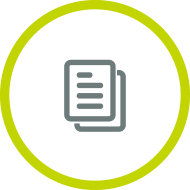
EHR Integration Case Study
Get a glimpse of your future, by looking at our past.
Cumberland Valley Analytical Services
Cumberland Valley Analytical Services (CVAS) is a leading agricultural testing laboratory that has been serving farmers and agribusinesses for over 25 years. In recent years, the company faced challenges in managing the large volume of data generated from their testing processes.
To address this issue, CVAS partnered with Orases, a software development company, to implement a Laboratory Information Management System (LIMS). Orases developed a customized LIMS solution that streamlined CVAS testing processes and improved the accuracy and efficiency of their data management. The result was a 50% reduction in sample turnaround time and a 90% reduction in errors.
Learn more about how Orases improved the site user experience for the CVAS.
View Case Study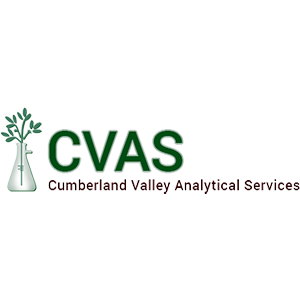
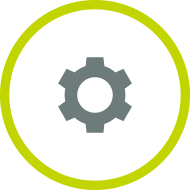
Notable Features & Functionalities EHR Integration Offers
What Orases EHR integration can provide for you.
Implementing custom software can unlock new possibilities and help businesses reach their full potential. These are some of the areas we help improve:
Seamless UX/UI Integration
Our custom EHR systems offer a seamless UX/UI tailored to the needs of doctors and nurses and general features applicable to hospitals, physician practices, and more.
Accessibility
Features such as voice assistance, dictation, handwriting and image recognition, and medication prescription assistance allow for greater ease in patient care.
Integrated Custom Software Solutions
At Orases, we provide comprehensive module solutions for businesses in the healthcare industry. Our services range from practice management to patient communication and telemedicine.
Advanced Healthcare Data & Analytics Capabilities
Our expertise includes analyzing patient health data such as lab tests, vitals, and medical images. When healthcare organizations integrate predictive analytics into their EHR, they gain support for their efforts in disease prevention and population health maintenance.
Management-Centric Tools
Orases offers a variety of tools to help manage tenants and provide technical features. These include a secure HIPAA-compliant cloud through either AWS or Azure, self-registration for tenants, trial periods, and user management by roles and billing.
User-Friendly Experience
At the forefront of our EHR and EMR software design is ensuring that medical staff has an easy experience. We strive for an ergonomic design, performance optimization, and compatibility with mobile devices.
Interoperability
Interoperability is critical for healthcare IT systems to communicate effectively. To this end, we create EHR software that meets the industry standards, such as HL7, FHIR, and XDS/XDS-I.
Implementation Of Advanced Technologies
Developing efficient electronic health records (EHRs) relies on modern technologies such as data analytics, blockchain, artificial intelligence (AI), and more.
Meet Compliance Regulations
We take all necessary steps to comply with governing regulations and requirements (HIPAA, CEHRT, SAFER, MACRA), incorporating the appropriate technical safeguards into our electronic health record system design.
Important EHR Integrations
For enhanced processes, greater visibility and data consistency, Orases encourages integrating EHR solutions with applicable corporate systems. Essential connections involve incorporating the following:
- Epic
- MyChart
- Cerner
- AthenaHealth

Custom Software Development Costs
A frame of reference when planning for your organization’s EHR software project.
Pricing for custom software development can vary greatly, depending on functionality/feature requests, technology stack requirements, and expected completion timeline.
$50,000 – $200,000
Developing smaller general software solutions with some complex features.
$500,000 – $1,500,000
Developing specialized software programs that can be designed for customer use.
$2,000,000+
Developing massive software projects designed fully automate large business operations.
Custom Software Development: The Ultimate Guide
Ranging from tips on when to choose custom software and how to choose the right custom software development company to what to expect during development, our ultimate custom software development guide has it all.
Custom Software Development Guide

The Orases Process
How we work, from start to finish.
Our EHR integration team has years of experience designing and developing unique & innovative custom software using a streamlined, repeatable process.
Idea
This involves documenting key business processes and eliciting needs and concerns from stakeholders. Additionally, risks associated with introducing new software are evaluated, and mitigation measures are planned. For commercial software products, this phase also includes conducting competition analysis, understanding the target audience’s needs, defining product differentiation, and addressing obstacles to market entry, such as regulatory barriers.
Define Goals
Defining goals involves composing a comprehensive list of requirements and expectations, ensuring alignment between stakeholders and the development team. By starting with a precise definition of the project’s specific requirements and scope, clarity and focus are ensured, laying a solid foundation for the development process to follow.
UX/UI Design
UX/UI design will determine the software’s appearance at the user level, defining app architecture, and integrating existing enterprise systems for cost-effectiveness and reliability. Additionally, UX research is conducted to outline user personas and scenarios, followed by the creation of wireframes and clickable prototypes to visualize user interactions.
Development
Our development team begins working on the essential components of the software. This involves continuous delivery of new software parts, with ongoing analysis of emerging needs and release planning. Mockups are delivered and reviewed to ensure alignment with requirements before developers proceed with developing, testing, and migrating approved software parts to staging and production environments for deployment.
Testing
Orases will conduct thorough verification of functionality and performance, including performance monitoring and utilizing analytics tools for ongoing evaluation. Feedback is gathered from project sponsors and users on the results of the release, and the outcomes are reviewed to approve the scope of the next release. Continuous improvement is prioritized through iterative testing and refinement based on insights gained from monitoring tools.
Deployment
Deployment involves pushing the finalized product to the live server and conducting user testing to ensure it meets stakeholder expectations. Additionally, software monitoring processes are established to track performance and address any issues that may arise post-deployment.
Training & Support
This step includes conducting project evaluations and performing knowledge transfer sessions to your in-house IT team or other vendors involved. Comprehensive training and documentation are offered to users, empowering them to utilize the software effectively. Finally, a final report is provided, and confirmation for project closure is requested to conclude the development cycle.
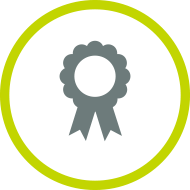
Awards & Recognitions
Proof our EHR integrations continues to excel.
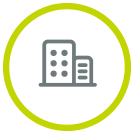
Industries We Build Custom Software For
Software built to address specific needs of organizations everywhere.
We tailor fit software to address the specific needs, pain points, and processes for the following industries.

Our EHR Integrations Speak For Themselves
But so do our clients.

Logan Gerber – Marketing Director at NFL Foundation
“Orases successfully built efficiencies into our prototype and delivered a high-quality platform.”

Matt Owings – President at Next Day Dumpsters
“They’re honorable, reputable, and easy to work with. They genuinely care about the outcome and want to do a good job.”

Donald J. Roy, Jr., CPA – Executive Vice President at American Kidney Fund
“Orases built a platform that’s boosted productivity by about 30%…”

Torey Carter-Conneen – Chief Operating Officer at American Immigration Lawyers Association
“Not only do they want to succeed, they strive to produce functionally and visually unique software.”

Frequently Asked Questions
Answers to the questions that’s been on everyone’s mind.
Why Is EHR Integration Important?
EHR integration is essential for providing comprehensive patient care, reducing administrative burdens, minimizing errors, and ensuring that healthcare providers have access to accurate and up-to-date patient information.
How Does EHR Integration Improve Patient Care?
EHR integration improves patient care by ensuring that healthcare providers have timely access to complete patient records, facilitating better coordination of care, reducing the likelihood of medical errors, and enabling personalized treatment plans.
How Can Data Security Be Ensured During EHR Integration?
Data security can be ensured by implementing robust encryption methods, complying with healthcare regulations such as HIPAA, using secure data transfer protocols, conducting regular security audits, and providing ongoing staff training on data privacy best practices.
How Does EHR Integration Support Interoperability In Healthcare?
EHR integration supports interoperability by enabling different healthcare systems and applications to communicate and exchange data effectively, leading to a more connected and efficient healthcare ecosystem.
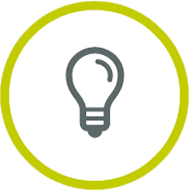
Featured Insights
Take a deeper dive into the world of possibilities EHR integration offers.

How to Integrate Medical Claims Software with EHR Systems
The integration of different healthcare systems and medical claims software are central to driving improvements in the industry.
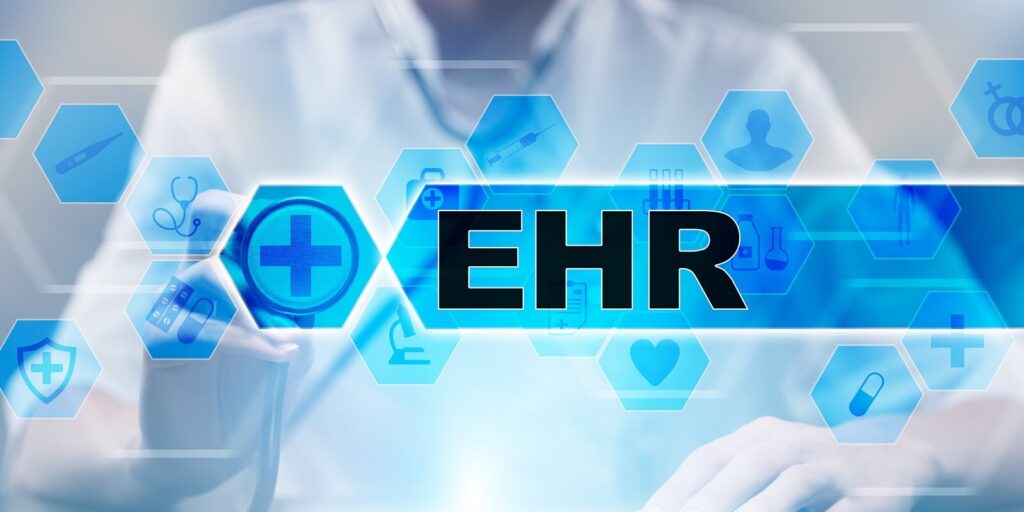
EHR Implementation Plan: A 9-Step Checklist
Learn how to create an effective EHR implementation plan with our nine-step checklist for healthcare providers.

Related Services & Solutions
We’ve got everything you need.




